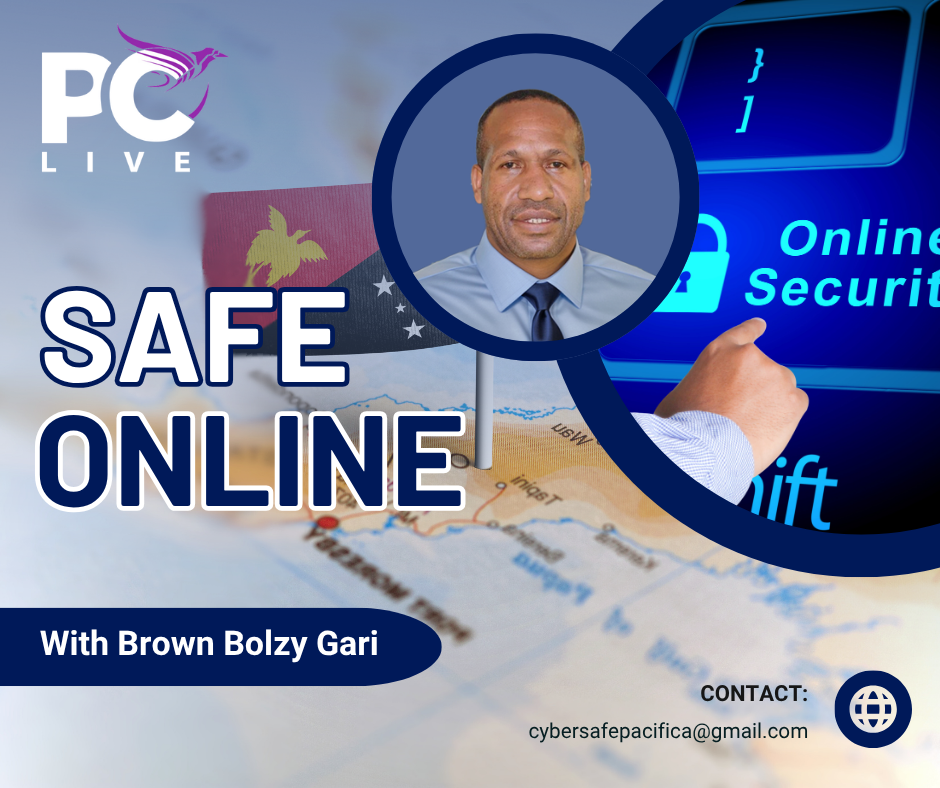Copyright postcourier

By Brown Bolzy Gari Every week, new Facebook pages appear across Papua New Guinea and the Pacific Islands promising easy money, fast profits, and a better life. Some pretend to be Bitcoin traders, foreign exchange experts, or investment brokers living in Australia, the Philippines, or Dubai. They show pictures of big houses, cars, cash, and fancy lifestyles. Their goal is simply to lure unsuspecting people into sending them money. Sadly, many of these scams succeed. People, especially those who are not digitally literate lose their hard-earned savings, and once the money is gone, the scammer disappears forever. This is now one of the most common cybercrimes in PNG, and it is spreading fast across the Pacific. The New Face of the Old Con In the past, con artists walked from village to village or town to town. They would trick people into buying fake gold, fake certificates, or even fake land. Today, the same lies have moved online into Facebook Messenger and WhatsApp. It starts simply. Someone usually a stranger sends you a friend request. Their Facebook page looks real: they use local names, post photos that look “PNG-style,” and write in familiar Tok Pisin or English. Some even use profile photos of real people stolen from the internet. After you accept their request, they start chatting politely. They talk about life overseas, their success, and how they want to “help you make money.” Within a few days, they move the conversation from Facebook to WhatsApp, where messages are private and harder to trace. Then comes the sales pitch: “Brother/Sister, I’m investing in Bitcoin.” “I make K5,000 every week just from my phone.” “If you send K500, I’ll show you how to multiply it 10 times.” Some even show screenshots of fake bank transfers or edited photos of bank statements to prove their “success.” The Trap Is Set Once the victim agrees, the scammer gives a local bank account number — usually registered to another person. This is where the scam becomes harder to trace. Many victims feel safe sending money because the account appears to belong to someone in PNG. After the deposit is made, the scammer promises to send back the “profits” within a few hours or a few days. But then, the excuses begin. “The system is updating.” “I need another K200 for clearance.” “Your transaction is on hold; please be patient.” Eventually, the scammer blocks the victim on WhatsApp and disappears from Facebook. The victim loses their money, sometimes thousands of kina and there is no way to recover it. Why People Fall for It Many victims are digital semi-illiterate. They use Facebook and WhatsApp daily but don’t fully understand how online scams work. Some are drawn in by desperation, poverty, or the hope of quick financial relief. Others trust the scammers because they “sound PNG” or seem friendly and honest. These scams play on emotion, hope, fear, and greed. When people see photos of expensive cars and foreign lifestyles, they imagine it could be true for them too. Unfortunately, scammers use those same dreams to steal what little people have. The Real Impact The damage is not just financial. Victims often feel ashamed, embarrassed, and afraid to report it. Some even hide it from their families. The pain runs deep because many victims realize they were manipulated by fake friends. In some cases, whole families or church groups lose money because one trusted person convinced others to invest. The ripple effect can be devastating destroying trust and breaking relationships. How to Protect Yourself and Others 1. Be suspicious of quick profits. If someone promises you double or triple your money in a few days, it’s a scam. Real investments take time and always involve risk. 2. Never send money to strangers. No legitimate business or government program will ask you to deposit into a personal bank account. 3. Verify before you believe. Check official company websites or call a bank directly before investing. Don’t rely on screenshots or WhatsApp messages. 4. Don’t share personal or banking details. Scammers collect information to target you again or steal your identity. 5. Talk to someone you trust. Before sending money, ask a family member, church leader, or friend if the offer sounds real. Two heads are better than one when spotting lies. 6. Report suspicious pages. Use Facebook’s “Report” feature or tell the police’s Cybercrime Unit if you suspect fraud. What Facebook and Banks Should Do While individual caution is important, big platforms and banks must also do their part. Facebook should act faster to remove fake accounts and scam ads, while local banks should tighten checks on suspicious deposits and withdrawals linked to scam activity. Public awareness campaigns are also essential to help rural and semi-literate citizens understand the dangers. We Can Stop the Scammers Together Cybercrime is not only a law enforcement issue, it is a community problem. Village leaders, tribal chiefs, churches, schools, and families must all play a role in spreading awareness. Let’s teach each other how to identify scams, protect our elders, and guide our young people. Our Pacific values of honesty, respect, and community can be our strongest defense. When we stand together, scammers lose their power. If you or someone you know has been scammed or wants to learn more about online safety, contact CyberSafe Pacifica for advice and support. Email us at; cybersafepacifica@gmail.com Facebook Page: CyberSafe Pacifica Together, let’s make the internet a safer place for all Papua New Guineans and Pacific Islanders.



